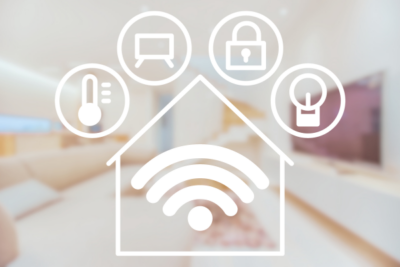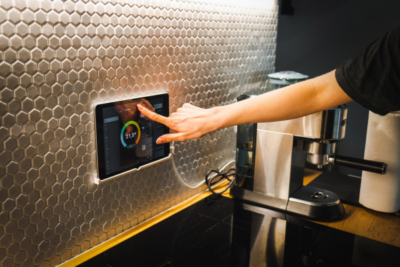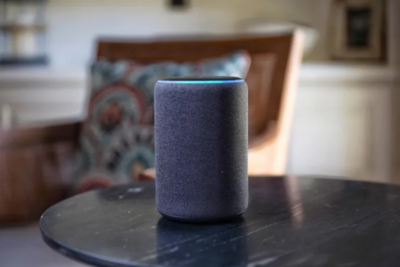
Smart homes were once a thing of science fiction, something out of Star Trek. Today, they are much more science fact than fiction. Imagine having a voice-activated, wifi-enabled coffee pot? You can! Transforming your house into a smart home offers a range of benefits that can enhance your lifestyle in various ways, and none include your house taking over, we promise. Here are some reasons why making your home smart can be advantageous:

- Convenience: Smart devices offer convenience by allowing remote control of various home functions.
- Energy Efficiency: Many smart devices are designed to conserve energy.
- Enhanced Security: Smart home security systems, cameras, and smart locks provide advanced monitoring and control, allowing you to keep an eye on your home and secure it from anywhere. (No more forgetting to lock the front door.)
- Customization and Automation: With smart technology, you can create personalized settings and automate routines to suit your lifestyle.
- Improved Home Entertainment: Smart TVs, speakers, and entertainment systems offer seamless integration and access to streaming services, music, and more.
- Environmental Impact: By managing energy usage more efficiently, smart homes contribute to reducing the overall environmental impact, helping in conserving resources and lowering your carbon footprint.
- Peace of Mind: The ability to remotely monitor and control your home can provide peace of mind. Whether you’re at work or on vacation, knowing that you can check in on your home or control devices remotely can be reassuring.

Introducing smart technology into your home can be daunting. Here are some steps to get you started:
- Assess Your Needs: Identify the areas in your home where you’d like to introduce smart technology. It could be security, lighting, temperature control, entertainment, or appliances.
- Research and Choose Smart Devices: There’s a wide range of smart devices available. Select devices that suit your needs. Common ones include smart speakers (like Amazon Echo or Google Home), smart thermostats (like Nest or Ecobee), smart lighting (such as Philips Hue or LIFX), smart plugs, smart locks, and security cameras.
- Check Compatibility: Ensure the devices you choose are compatible with each other and can be controlled through a central system. Many devices work with popular smart home platforms like Amazon Alexa, Google Assistant, or Apple HomeKit.
- Start Small: Begin with a few devices. Smart plugs or bulbs are often an easy starting point. You can then expand gradually.

- Set Up Your Devices: Follow the manufacturer’s instructions for setting up the devices. Usually, this involves downloading an app and connecting the devices to your Wi-Fi network.
- Create a Smart Home Hub (Optional): Consider a central control system like Samsung SmartThings, Hubitat Elevation, or Apple HomePod to manage multiple devices from one place.
- Connect Devices to Voice Assistants: Link your devices to voice assistants (if applicable). This enables voice control and seamless integration.
- Automate and Customize: Utilize the features that these devices offer. Set schedules for lights, adjust thermostat settings remotely, create routines, and personalize settings to your preferences.
- Ensure Security: Change default passwords, update firmware regularly, and secure your Wi-Fi network to prevent unauthorized access to your smart devices.
- Explore Further Options: As you become comfortable with smart technology, consider additional devices to further enhance your home.

Remember, it’s essential to research and ensure compatibility to avoid investing in devices that may not work well together. Also, take the time to understand the functionalities and capabilities of each device to make the most of your smart home setup. Ultimately, the decision to make your home smart depends on your lifestyle, needs, and preferences. The convenience, efficiency, and added security offered by smart home technology can significantly improve your quality of life.
